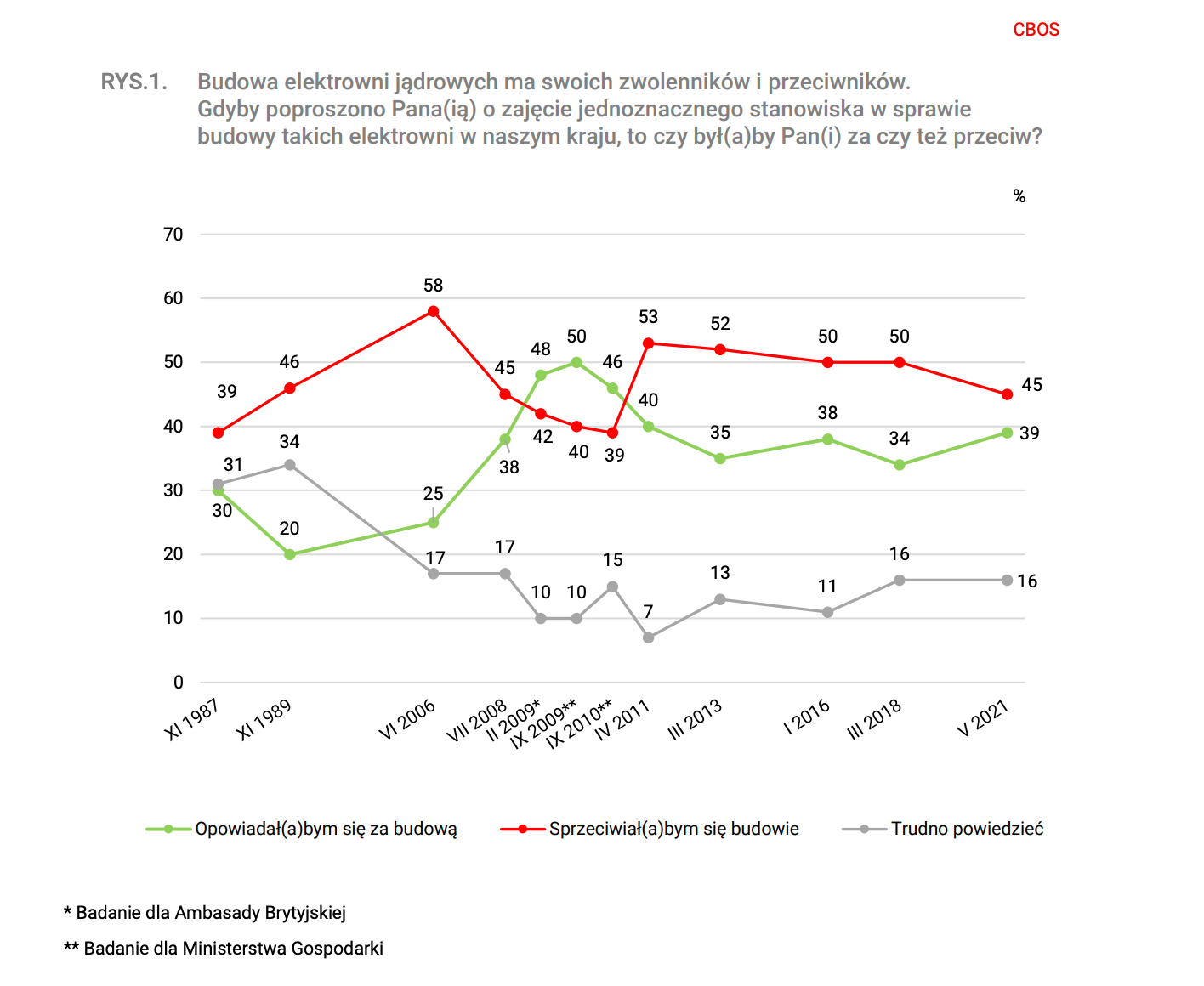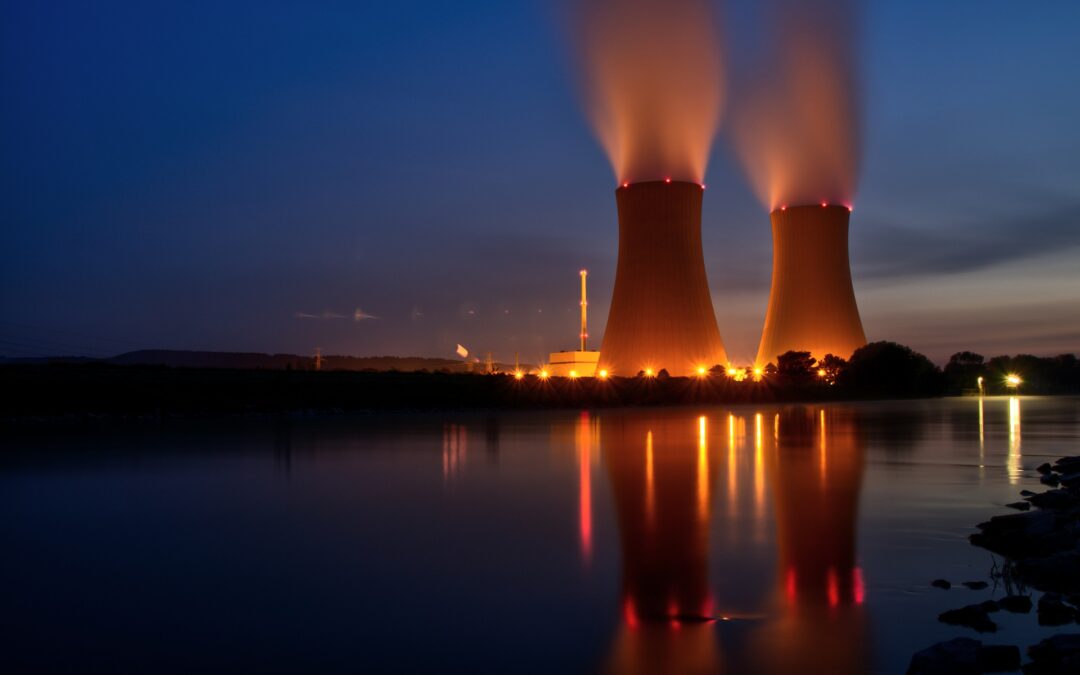More Poles are opposed to the building of nuclear power plants than are in favour, according to a new poll. The findings comes as Poland’s government and private investors push forward with plans to launch the country’s first commercial reactors.
The survey by UCE Research for Business Insider Polska found that 45.1% of respondents are against building nuclear plants in Poland, including 28.6% strongly opposed. Meanwhile, 38.8% support construction, with 11.2% strongly in favour. The remaining 16.1% expressed no opinion
Over 60% of those surveyed said they would not want a nuclear power plant built close to their home, with only 27.5% accepting the idea.
The figures echo others reported in June by state pollster CBOS, which found 39% in favour of building nuclear plants (a five percentage point increase since 2018) and 45% opposed (a 5 percentage point drop). Women were more likely (55%) to support nuclear energy than men (25%).

Are you for or against nuclear power in Poland? Green line: “I support construction”; red line: “I am against construction”; grey line: “hard to say”. Source: CBOS
A study last year by research agency DANAE, commissioned by the climate and environment ministry, saw a much higher proportion, 62.5%, in favour of building nuclear plants and 31.6% opposed. That was the highest level of support found since such research began in 2012.
The same survey found that 70% of Poles thought nuclear could be a “good way to fight climate change” and 72.6% that it would bolster the country’s energy security.
The government recently outlined plans to construct six nuclear reactors by 2043 with a total capacity of 6 to 9 GW. It will need to make a final call on international partners by the end of next year, with Business Insider reporting that an offer has already been received from France’s state-owned electric utility EDF.
For now, a location for the government’s first nuclear units, planned to launch in 2033, has not yet been selected. But the most likely sites are Lubiatowo-Kopalino and Żarnowiec, where construction on a nuclear power plant began under communism in the 1980s but was never completed.
The 1986 Chernobyl disaster in neighbouring Ukraine contributed to the abandonment of the Żarnowiec project. Chernobyl still today influences opposition to the development of nuclear plants in Poland.
But the government sees nuclear as playing an integral role in weaning Poland off its reliance on coal, which accounts for around 70% of electricity production, by far the highest level in the EU. Current plans see that share falling to under 60% by 2030, and potentially as low as 11% by 2040.
Businesses, especially in high-emitting sectors, have also been eyeing nuclear for cleaner energy that is less intermittent than renewables such as wind and solar.
This year, a number of Poland’s largest companies have signed deals for investments in Small Modular Reactor (SMR) nuclear technology.
Two of the country’s richest men, chemicals tycoon Michał Sołowow and Zygmunt Solorz, who owns a power plant conglomerate, are aiming to have an SMR reactor online by 2027, though experts have suggested 2030 as a more realistic date.
Sołowow’s company Synthos in 2018 signed a deal with US-based GE Hitachi Nuclear Energy (GEH) giving it exclusivity in terms of developing SMR technology with the company in Poland.
In another deal, Polish state-owned mining giant KGHM signed an agreement with NuScale, a US-based developer of nuclear reactors and rival to GEH, for the creation of what could be Poland’s first nuclear power plant in 2029.
The country’s largest company, state oil giant PKN Orlen, has also signed a deal with Synthos to develop 300MW reactors.
As the Polish government drags its feet on building the country’s first #nuclear plant, businesses are eyeing smaller but largely untested reactors.
I talked to lobbyists, professors, politicians and energy journos to get a sense of #Poland's nuclear racehttps://t.co/S6qwuLg779
— Maria Wilczek (@mariawilczek) October 4, 2021
Main image credit: Wolfgang Stemme/Pixabay

Maria Wilczek is deputy editor of Notes from Poland. She is a regular writer for The Times, The Economist and Al Jazeera English, and has also featured in Foreign Policy, Politico Europe, The Spectator and Gazeta Wyborcza.



















